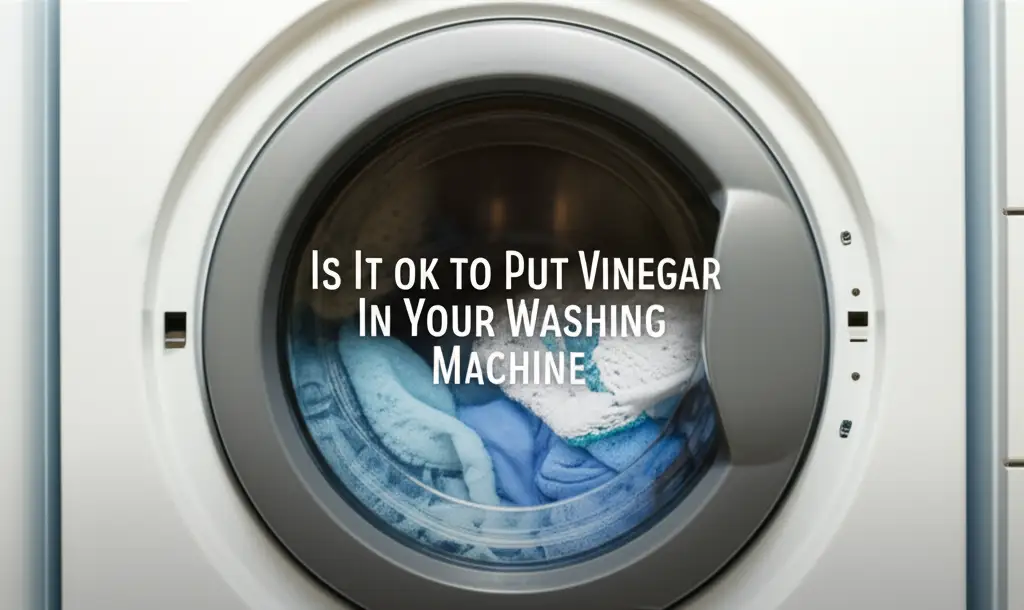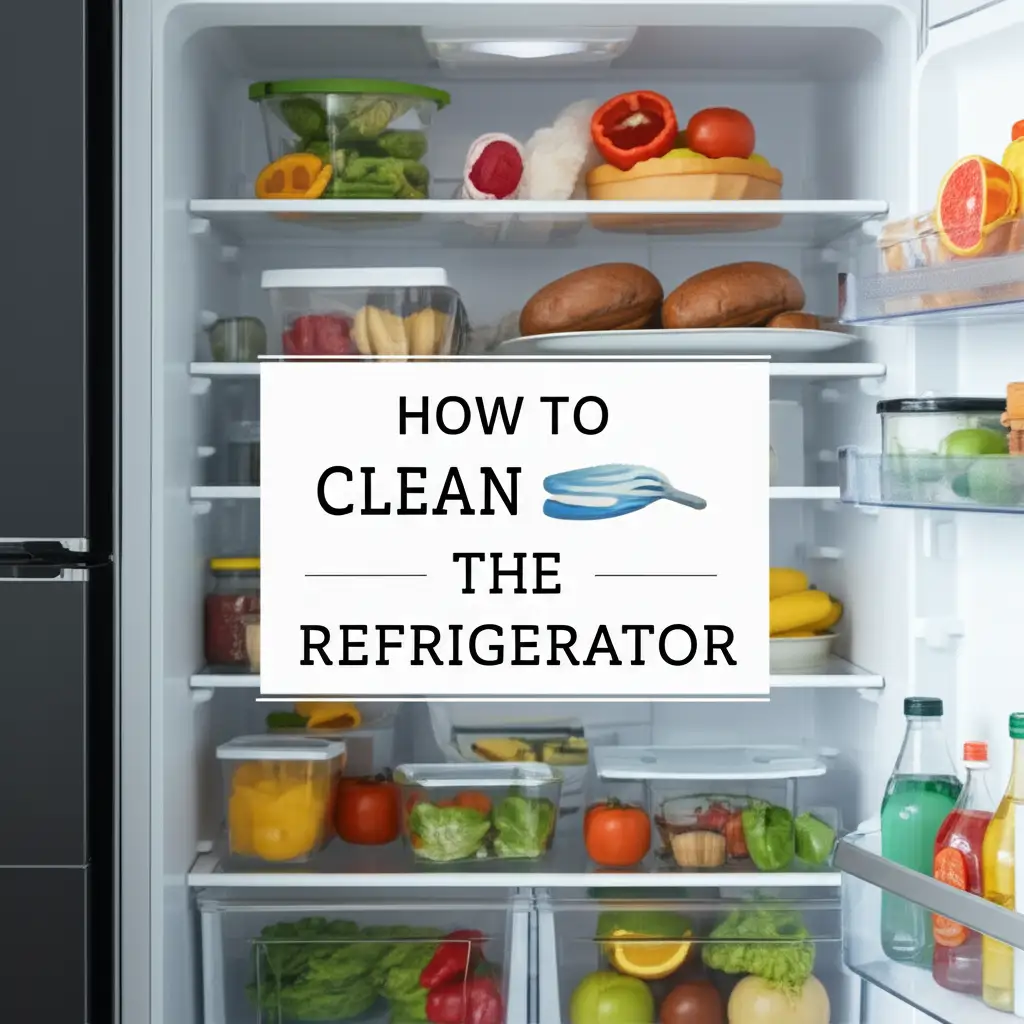· Mason Everett · Home Care · 11 min read
Is It Ok To Put Vinegar In Your Washing Machine

Welcome to our home. We all want our clothes to smell fresh. We also want our washing machine to run well. Many people wonder about using natural cleaners. One common question is: “Is it ok to put vinegar in your washing machine?”
Vinegar is a common household item. It is useful for many cleaning tasks. But is it safe for your laundry appliance? Can it truly clean your machine and clothes? We will explore how vinegar works in a washing machine. We will discuss its benefits and potential downsides. This article explains when and how to use vinegar. You will learn the best ways to keep your machine and clothes clean.
Takeaway
- Yes, Use Vinegar: White distilled vinegar is safe and effective for washing machines.
- Clean and Deodorize: It cleans hard water stains and removes odors.
- Use Correctly: Add vinegar directly to the detergent dispenser or drum.
- Avoid Bleach: Never mix vinegar with bleach.
- Protect Seals: Wipe rubber seals after use to prevent damage.
Yes, it is generally safe and beneficial to put white distilled vinegar in your washing machine. Vinegar helps clean the machine itself, removes odors, and can act as a natural fabric softener. Use it to tackle mildew, hard water deposits, and general grime buildup inside the drum and hoses.
Is Putting Vinegar in Your Washing Machine Safe and Effective?
Many people ask if using vinegar in a washing machine is a good idea. The simple answer is yes. White distilled vinegar is a safe and effective cleaner for your laundry appliance. It has a mild acidity that helps break down buildup. This includes soap scum, mineral deposits, and mold.
Vinegar is a natural product. It offers an alternative to harsh chemicals. It does not leave strong residues. This makes it a good choice for sensitive skin. I have used it many times myself. It helps my machine stay clean and fresh.
The acidity in vinegar works wonders on hard water stains. These stains can make your machine look dirty. They also affect how well your machine cleans clothes. Regular use of vinegar keeps these problems away. It helps your washing machine run at its best.
Using vinegar is a cost-effective way to maintain your washing machine. You probably already have a bottle in your pantry. This makes it an easy and accessible cleaning solution. My own experience shows it truly works.
Benefits of Using Vinegar for Washing Machine Cleaning
Adding vinegar to your washing machine offers many benefits. It is not just about cleaning. Vinegar also helps with odors and general maintenance. Let me share how it helps.
First, vinegar excels at cleaning the machine itself. Your washing machine can get dirty over time. Soap scum, lint, and minerals build up inside. Vinegar cuts through this grime. It leaves the drum sparkling clean.
Second, vinegar is a great deodorizer. Washing machines can develop a musty smell. This happens from trapped moisture and mildew. Vinegar neutralizes these odors. It leaves your machine smelling fresh. I find this especially helpful for front-loader machines.
Third, vinegar acts as a natural fabric softener. If you add it to the rinse cycle, it helps soften clothes. It also removes detergent residue from fabrics. This makes your clothes feel softer. It is a good choice for those who avoid chemical softeners.
Fourth, vinegar helps remove hard water deposits. Hard water leaves mineral buildup. This buildup affects both your machine and your clothes. Vinegar’s acidity dissolves these deposits. This keeps your machine running efficiently. It also keeps your clothes cleaner.
How to Properly Use Vinegar in Your Washing Machine
Using vinegar correctly ensures the best results. It also prevents any issues. There are specific ways to add it for different purposes. Follow these steps for effective use.
For a full machine cleaning, start with an empty washer. This means no clothes inside. Pour two cups of white distilled vinegar into the detergent dispenser. You can also pour it directly into the drum.
Then, run a hot water cycle. Select the hottest water setting available. Choose the largest load size. Allow the cycle to complete fully. This hot water and vinegar mixture cleans the entire system. It flushes out soap scum and mineral deposits. You can also find more tips on how to clean a top loader washing machine to keep it working well.
For laundry use, vinegar can replace fabric softener. Add half a cup of white distilled vinegar to the fabric softener dispenser. This should happen during the rinse cycle. It helps soften clothes. It also removes any remaining detergent.
If you are dealing with smelly clothes, add one cup of vinegar. Put it directly into the drum with your clothes. Do this before starting the wash cycle. It helps eliminate strong odors from sportswear or towels. Remember to never mix vinegar with bleach. This creates a dangerous gas.
When to Incorporate Vinegar into Your Laundry Routine
Vinegar is versatile. You can add it to your laundry routine for various reasons. Knowing when to use it helps you get the most out of it. I often use it for specific issues.
You should use vinegar for routine machine maintenance. Run an empty cycle with vinegar once a month. This prevents buildup. It also keeps your machine smelling fresh. This regular cleaning helps your washing machine last longer.
Use vinegar if your washing machine smells musty. A strong, unpleasant smell often means mold or mildew. Run an empty hot cycle with vinegar. This will clear the odor. For more specific cleaning tips, learn how to clean a washing machine agitator. This part often collects grime.
If you have hard water, vinegar is very helpful. Hard water leaves mineral deposits. These can clog hoses and affect cleaning. Use vinegar regularly to dissolve these minerals. It keeps your machine efficient.
Vinegar also helps when clothes come out stiff or dull. This often means detergent residue. Adding vinegar to the rinse cycle helps remove this residue. Your clothes will feel softer and look brighter. For example, if you are looking for tips on what goes where in a washing machine, remember vinegar usually goes in the softener dispenser during the rinse.
What Not to Do When Using Vinegar in Your Washing Machine
While vinegar is generally safe, there are important rules to follow. Misusing vinegar can cause problems. It can damage your machine or laundry. Let me explain what to avoid.
First, never mix vinegar with bleach. This is a very important rule. Mixing these two creates chlorine gas. This gas is toxic and dangerous. It can cause serious respiratory problems. Always use one product at a time. If you bleach your clothes, use vinegar on a separate wash day.
Second, do not overuse vinegar on rubber seals. Washing machines have rubber seals. These seals are around the door on front loaders. Vinegar’s acidity can, over a long time, dry out rubber. This can lead to cracking. After using vinegar, always wipe down the rubber seals. This helps remove any vinegar residue. This also keeps the seals from degrading.
Third, avoid using vinegar on very delicate fabrics without testing first. While generally safe for most clothes, some delicate materials react differently. Always test a small, hidden area first. This helps ensure no discoloration or damage occurs. Most natural fibers like cotton and linen are fine.
Finally, do not expect vinegar to remove all types of stains. Vinegar is good for odors and buildup. It is not a miracle stain remover for every kind of mess. For example, it will not remove oil stains. Learn how to get oil out of washing machine with other methods. For stubborn stains, use a targeted stain remover before washing.
Vinegar vs. Commercial Washing Machine Cleaners
Deciding between vinegar and commercial cleaners can be tricky. Both have their pros and cons. I have used both and can share my thoughts.
Vinegar is a natural and affordable option. It is non-toxic. This means it is safer for homes with children or pets. It is also environmentally friendly. Vinegar works well for general cleaning and deodorizing. It helps with hard water issues too. It is a good choice for regular maintenance. The cost is also very low compared to specialized cleaners.
Commercial washing machine cleaners often contain stronger chemicals. These chemicals are designed for heavy-duty cleaning. They can tackle severe mold or mildew problems. They may work faster in some cases. However, they can be more expensive. They also leave a chemical smell that might bother some people. Some people with sensitive skin prefer to avoid them.
I prefer vinegar for regular cleaning. It keeps my machine clean without harsh chemicals. If I face a very tough buildup, I might consider a commercial cleaner once in a while. But for most situations, vinegar does the job perfectly. The choice depends on your needs and preferences. Both options have their place in keeping your washing machine clean.
Maintaining Your Washing Machine for Longevity
Proper maintenance is key for your washing machine’s lifespan. Regular care prevents costly repairs. It also keeps your machine efficient. Using vinegar is one part of this care. But there are other steps too.
First, always wipe down the drum and dispenser after each use. This removes moisture. It helps prevent mold and mildew growth. For front-loaders, leave the door ajar after a wash. This allows air circulation. It helps the machine dry out completely.
Second, clean the detergent dispenser regularly. Detergent and fabric softener can build up here. This can clog the dispenser. It affects how well the products dispense. Pull out the dispenser if possible and wash it with warm soapy water. You can also use a brush to scrub stubborn residue.
Third, check and clean the filter often. Many washing machines have a lint or drain pump filter. This filter traps small items and lint. A clogged filter can affect drainage and machine performance. Consult your machine’s manual to find and clean this filter.
Fourth, run an empty hot water cycle with vinegar once a month. As discussed, this keeps the internal components clean. It flushes out soap scum and mineral deposits. This routine cleaning is simple but very effective. For general DIY tips on fixing home appliances, you might find articles on how to do it yourself washing machine maintenance useful. These steps help you prevent common problems.
Frequently Asked Questions About Vinegar in Washing Machines
Can I put white vinegar directly into the washing machine drum?
Yes, you can put white distilled vinegar directly into the washing machine drum. For cleaning the machine, pour two cups into an empty drum. For laundry, add one cup with your clothes to tackle odors. Ensure the machine is otherwise empty when cleaning the appliance itself.
How much vinegar should I use for a washing machine cleaning cycle?
For a thorough washing machine cleaning cycle, use two cups of white distilled vinegar. Pour it directly into the drum or into the detergent dispenser. Run the machine on its hottest and longest cycle with an empty load.
Will vinegar damage my washing machine’s rubber seals?
Vinegar can potentially dry out rubber seals over a long time if left to sit. To prevent damage, always wipe down the rubber seals around the door after using vinegar. This removes any acidic residue and helps keep the seals intact and flexible.
Can vinegar replace laundry detergent or fabric softener?
Vinegar can act as a natural fabric softener when added to the rinse cycle (about half a cup). However, it cannot replace laundry detergent. Detergent is designed to clean clothes. Vinegar helps with odors, softening, and residue removal. It does not lift dirt and stains like detergent.
Does vinegar kill mold and mildew in washing machines?
Yes, white vinegar is effective at killing mold and mildew in washing machines. Its acetic acid content disrupts these fungi. Running a hot cycle with vinegar helps clean away existing mold and prevents future growth. Regular use keeps your machine free of these issues.
Can I mix vinegar with other cleaning products in the washer?
No, never mix vinegar with bleach. This creates a dangerous chlorine gas. Avoid mixing vinegar with other strong cleaners too. It is best to use vinegar by itself for washing machine cleaning. Always rinse the machine thoroughly if you used another cleaner before using vinegar.
Conclusion
So, is it ok to put vinegar in your washing machine? The answer is a clear yes. White distilled vinegar is a safe, effective, and natural way to keep your washing machine clean. It removes odors, tackles hard water deposits, and acts as a fabric softener. I have found it to be an essential tool in my home cleaning routine.
Using vinegar helps your machine run better. It makes your clothes smell fresher. Remember to use it correctly. Always avoid mixing it with bleach. Wipe down rubber seals after use. By following these simple steps, you can enjoy a cleaner machine and cleaner laundry. Start incorporating vinegar into your washing machine care. Your appliance and your clothes will thank you for it.





